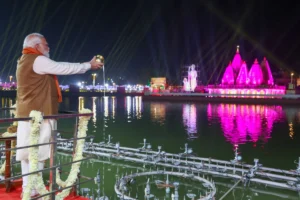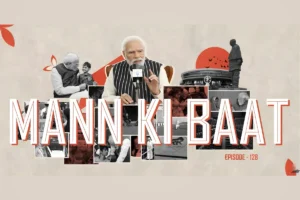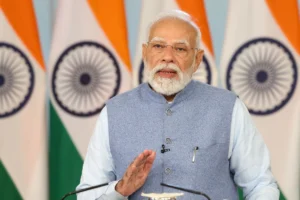
Aamir Khan’s ex-wife Kiran Rao’s new film ‘Missing Ladies’ was greatly appreciated by the audience at the 3rd Red Sea International Film Festival held in Jeddah, Saudi Arabia. Aamir Khan and Jio Studio have produced this film. This year, on September 8, 2023, this film had its world premiere at the Toronto International Film Festival. This film will be released in Indian theatres next year on 5 January 2024.
A total of three films from India were shown in this film festival, two of which were Hindi and one Punjabi. Along with Kiran Rao’s ‘Missing Ladies’, Nikhil Nagesh Bhatt’s ‘Kill’ produced by Karan Johar and Guneet Monga and Indian-origin Canadian filmmaker Tarsen Singh’s Punjabi film ‘Dear Jassi’ produced by T-Series’ Bhushan Kumar and others. It was liked a lot here.
‘Dear Jassi’ has been written by ‘Oh My God-2’ director Amit Rai. Kiran Rao has made a film twelve years after ‘Dhobi Ghat’ (2011). It was written by Sneha Desai based on the story by Biplab Goswami. The lead roles are played by Ravi Kishan, Sparsh Srivastava, Pratibha Ratna, Nitanshi Goyal, Geeta Aggarwal, Chhaya Kadam, Durgesh Kumar, Satyendra Soni etc.
At that time, there was a terrible purdah system in the villages of North India and the boy and the girl could not even see each other before marriage. With the help of a wandering fake handicapped beggar and his friend Chhotu, she takes shelter at an aunt who runs a tea-pakoda shop on the railway platform. Aunty doesn’t like the deceitful character of men.
She feels that Phool’s husband has deliberately abandoned her after taking dowry and celebrating the wedding night. Phool always wears a red wedding dress because she is sure that one day when her husband comes here searching for her, he will recognize her because of this red dress. Phool remembers only the name of his village, not its address. Villages with that name are found everywhere. She does not even know the whereabouts of her husband and in-laws. In those times, village women did not even speak their husband’s name.
In the movie there is no overt violence anywhere. But a lot has been said cheekily. Kiran Rao has shown the village and rural people in a very innocent manner. Even though the time of this film is around 2001 and the area is the border of Madhya Pradesh and Chhattisgarh, such an innocent and simple village no more exists.
Also Read: 4 out of 7 arrested in Europe for attacking Jewish institutions, suspected as Hamas members
To read more such news, download Bharat Express news apps










































